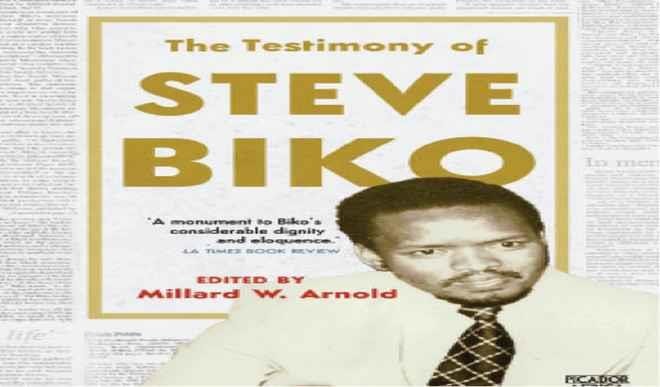Steve Biko centre launches book
The book is about the trial which started in the Pretoria Supreme Court in 1975. It recounts the events building up to the arrest of the nine South African Student Organisation (Saso) and Black People’s Convention leaders by the Security Police in October 1974 A book detailing the trial of nine leaders of the Black […]


The book is about the trial which started in the Pretoria Supreme Court in 1975. It recounts the events building up to the arrest of the nine South African Student Organisation (Saso) and Black People’s Convention leaders by the Security Police in October 1974
A book detailing the trial of nine leaders of the Black Consciousness Movement (BCM) that sat in Pretoria in 1976 has been launched as part of celebrating Steve Biko’s legacy.
Titled ‘The Testimony of Steve Biko’, it details the trial that led to the detention of these leaders.
According to the author, the trial became about the entire philosophy of Black Consciousness and those who championed its cause.
The book is about the trial which started in the Pretoria Supreme Court in 1975.
It recounts the events building up to the arrest of the nine South African Student Organisation (Saso) and Black People’s Convention leaders by the Security Police in October 1974.
This after they illegally took part in a Viva Frelimo rally in Durban, in September of that year.
At the time they were banned and prohibited from any gatherings.
Biko testified at the trial for four days, giving a lecture on what the BCM stood for.
Author and Editor, Millard Arnold, says the book that was banned 40 years ago, is more relevant now than ever before.
“When you look at what Steve understood was that you had to address not just the issue of racism with the underlying issues which give rise to racism which includes the very structure, system and ideology and values that supported it. What Steve was simply saying was that we need to think constantly about what separates us from that kind of a background which is to think about our humanity and understand that our uBuntuness is what makes us different and be able to understand that the conditions which Black people found themselves were no accident.”
Biko’s son, Nkosinathi, says such books are important to conscientise young people.
“I think it is important to publish this book on the occasion of the 40th anniversary because they provide the unadulterated voice and thoughts of Steve Biko which is often lost in third parties often writing about him and they provide young people with direct access to where he was in terms of thoughts at various stages of his life.”
Professor Saths Cooper, who was accused number one in the trial, and Zithulele Cindi, who was accused number nine, believe that a lot still needs to be done to liberate the masses economically and otherwise.
“1. Corruption and chaos that we see is not testimony to that revolution. I think what we are seeing is people who have let their own personal interests rise above those of people they ought to serve. 2. What we see today is not what we had struggled for, what we hoped we would have through the liberation struggle but the fundamental freedoms which relate to us having the access to economic power is eluding us. Even the political power we don’t have it as yet.”
Author, Millard Arnold, believes that when Steve Biko left the Pretoria High Court after four days of testimony, many were convinced that he was an organic intellectual – a view widely held by many Black Consciousness scholars.
The book is available at the Steve Biko Centre in Ginsberg, King William’s Town, and in other recognised book stores across the country.
Source: sabc.co.za
